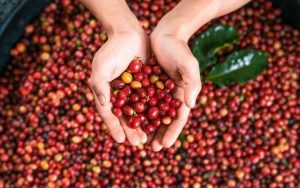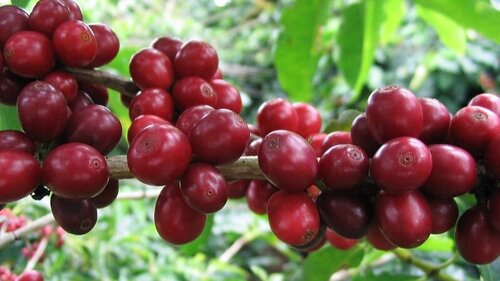The coffee farmers of Mt. Kenya can expect a windfall as high prices are paid for premium beans.
Improved quality and increased direct sales overseas are expected to generate a windfall for Mt. Kenya coffee farmers.
The high prices being reported have been attributed by many businesses in Nyeri County to the fact that over 80% of their coffee crop sold for premium prices.
Farmers have benefited from increased output, improved quality, more direct sales, and lower operating costs, according to many cooperatives.
According to Peter Mathenge, chairman of the Gachatha factory, 90% of the output from over 1,500 farmers was in the export-worthy AA, AB, BB, and C grades.
As a result of increased demand and increased quality, Mathenge and his team have been able to pay farmers over Sh100 per kilo for the past two years through direct sales.

In comparison to last year’s Sh106 earnings totaling Sh90 million from 719,000 kilograms, Mathenge said the factory has announced the highest payment rate in Nyeri this year at Sh120.
The factory reportedly earned about Sh50 million on production of 327,000 kilos last year.
The purchase of more effective pulping machines has helped improve parchment quality because they use less water and electricity while causing less wear and tear on the beans.
The machine does not nib or break beans during pulping, so farmers know their crop will be of premium quality and can charge more for it on the market, as stated by the chairman.
Furthermore, he stated that over 90% of the favorable rates were the result of increased direct sales to international customers. The auction only moved 10% of the group’s coffee supply.
Over 1,200 farmers were successful in securing 85% premium grades at the Kiandu factory, where only 10% of coffee was sold at auction. Direct sales accounted for 80% of total sales.
The factory’s production increased to 609,669 kilos in the 2020/21 season from 329,671 kilos in the previous season, as noted by Kariuki Mundia, the chairman of the factory.
He also pointed out that earnings from the produce had increased, from Sh30 million to Sh66 million.
More and more farmers, especially young people, are becoming interested in coffee farming, which has led to a dramatic increase in coffee production, as Mundia explains.
A few other groups have also announced rates of over Sh100. Thiriku is one of them, and it increased its payout to Sh110 from Sh100 this past season.
The factory’s chairman, Karoki Waiganjo, reported an increase in output from 170,000 kilograms in 2020/21 to 305,000 in the following year, resulting in a decrease in earnings to Sh39 million from Sh20 million.
According to him, the factory was selling its goods directly to Dutch company Trabocca BV for a minimum of Sh100 per kilo over a five-year period.
“Increased volumes and grades have worked to our favor, thus impressive returns for farmers,” Waiganjo noted.
According to John Gitinga, chairman of the Mathira Society of Baricho Farmers, the society distributed an average of Sh105 to its 7,000 members, bringing in nearly half a billion shillings.
According to Kamau Kuria, CEO of Coffee Management Service (CMS), production of 158 million bags is not enough to meet the current global demand of 172 million bags.
Kuria told The Standard that “coffee production in the world has a shortfall of 14 million bags” because of rising global demand.
Kuria observed that this has caused a rise in the price of the world’s second most traded commodity.
As a result of drought and frostbite in Brazil, the main supplier, Kuria observed that the international market is experiencing a severe shortage of quality Arabica coffee.
Since Brazil has been hit by drought and frost, Kenyan farmers can expect a bountiful harvest and high-quality coffee as a result, according to Kuria.
However, he did note that local production was still below capacity at 28,000 metric tonnes.
According to Kuria, “as a coffee marketing firm, we need to improve production, which currently stands at 2-20kg per bush, to improve on our tonnage.”
